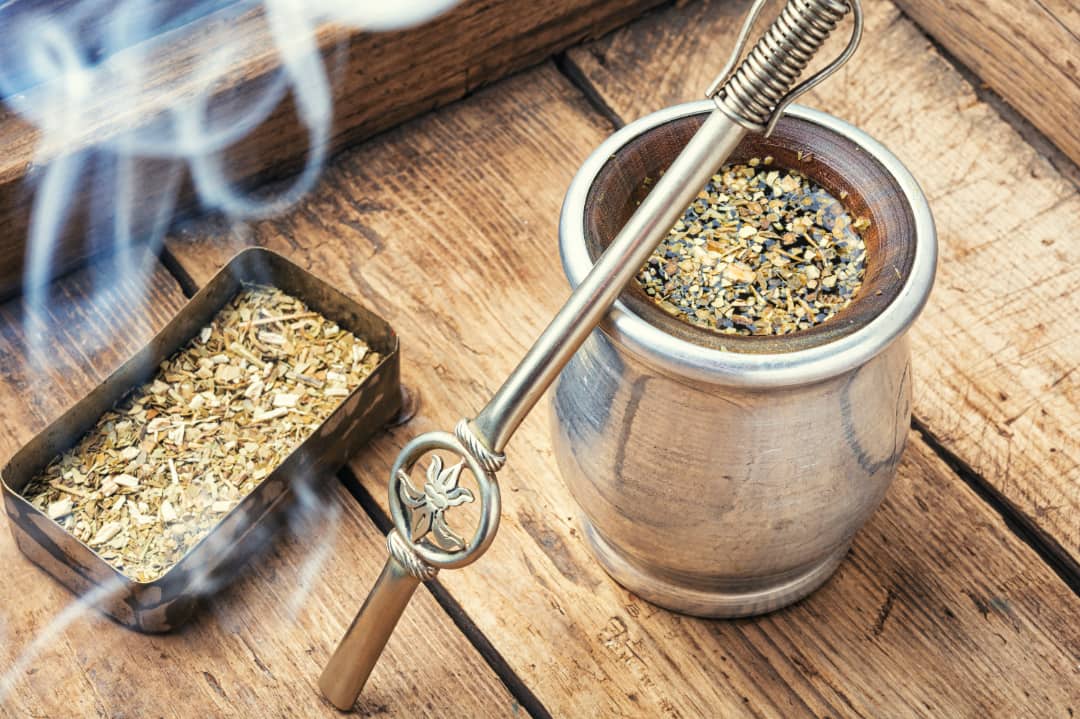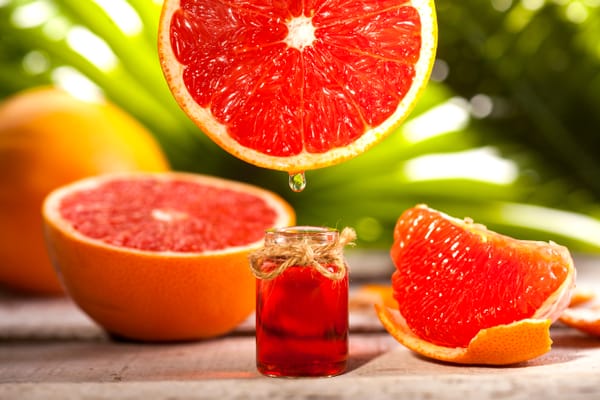Is Yerba Mate Better Than Coffee? Health & Taste Explored
Is yerba mate better than coffee? Explore the health benefits, taste profiles and environmental impact of these popular drinks to make an informed choice.

Are you at a juncture of indecision, holding a mug asking yourself "Is Yerba Mate better than Coffee?" Well, you're not alone.
Both drinks promise to awaken your senses and kick-start your day. But which is better?
This age-old question "Is Yerba mate better than coffee?" has been asked by countless caffeine enthusiasts worldwide. The allure lies not only in their rich taste profiles but also their unique health benefits.
In this exploration, we'll journey through uncharted territories - from understanding the origins of these popular beverages to dissecting their nutritional content. We’ll explore everything from potential health risks to environmental implications tied to production processes.
Stay tuned as we delve deeper into making an informed choice between coffee or yerba mate – a decision that might just change how you start your mornings forever!
Table Of Contents:
- Understanding Yerba Mate and Coffee
- Nutritional Comparison between Yerba Mate and Coffee
- Health Benefits and Risks
- Taste Profiles Explored
- Caffeine Content in Yerba Mate versus Coffee
- Environmental Impact
- Making an Informed Choice
- FAQs in Relation to Is Yerba Mate Better Than Coffee?
- Conclusion
Understanding Yerba Mate and Coffee
When it comes to traditional beverages, coffee has been a long-standing favorite. But there's another contender in town: yerba mate. Both are steeped in rich cultural histories.
Coffee, known for its robust flavor and stimulating effects, originates from Ethiopia. Over centuries, it spread globally due to its appeal as a pick-me-up drink (Coffee History). Now you can find different varieties like Arabica or Robusta each with unique flavors and caffeine levels.
In contrast, yerba mate is the celebrated beverage of South America - specifically Argentina, Paraguay, Uruguay and parts of Brazil (Yerba Mate Origins). This social drink is consumed traditionally in a gourd through a metal straw called bombilla.
The Cultivation Process
Both drinks have distinct cultivation processes which contribute to their unique tastes. Coffee plants thrive at high altitudes on hill slopes whereas yerba mate trees prefer subtropical climates near riverbanks (Coffee Science).
Coffee cherries take about nine months to ripen before they're handpicked for quality control. They undergo either wet or dry processing before roasting into what we recognize as coffee beans (Coffee Processing).
On the other hand, yerba mate leaves are harvested annually. They're then aged in special chambers to develop a characteristic flavor profile (Yerba Mate Processing).
Traditional Consumption
The ritual of drinking coffee varies worldwide, from Italian espressos to Turkish coffee cooked with sugar. Yet it's typically enjoyed individually.
In contrast, sharing a gourd of yerba mate is customary in South America - symbolizing hospitality and friendship.
Coffee's global reign is being challenged by South America's beloved yerba mate. With unique flavors from distinct cultivation methods, this friendly beverage offers a refreshing change. #YerbaMateVsCoffeeClick to Tweet
Nutritional Comparison between Yerba Mate and Coffee
When comparing yerba mate and coffee, it's crucial to look at their nutritional content. Both are rich in antioxidants but offer different nutrients.
Yerba mate is a powerhouse of vitamins and minerals. It contains vitamin A, B1, B2, C, E along with calcium, iron, magnesium, and zinc. This herb from South America also has seven out of the nine essential amino acids. According to research, yerba mate might be an ideal choice for those looking for more than just caffeine.
By contrast, coffee may not be as nutritionally rich but it does provide various health benefits. The key antioxidant found in coffee is chlorogenic acid which studies suggest may help regulate blood sugar levels and improve heart health.
Vitamins & Minerals Content: Yerba Mate vs Coffee
The below table gives you a glimpse into how these two beverages stack up against each other nutrient-wise:
| Yerba Mate | Coffee | |
|---|---|---|
| Vitamin A | Present | Absent |
| B Vitamins (B1, B2) | Present | Absent |
| Vitamin C | Present | Absent |
| Calcium | Present | Absent |
| Iron | Present | Absent |
Yerba mate or coffee? Both are antioxidant-rich, but did you know yerba mate packs vitamins A, B1, B2, C and E plus minerals like calcium and iron? If you're after more than caffeine kickstart to your day, maybe it'sClick to Tweet
Health Benefits and Risks
The health benefits of yerba mate and coffee are numerous, but they come with certain risks too. Let's take a closer look.
Yerba Mate: A Nutrient Powerhouse
Yerba mate is packed full of nutrients including vitamins, minerals, amino acids, and antioxidants. It has been linked to improved heart health and weight loss according to research. Although yerba mate has been linked to health benefits, its high temperature when traditionally consumed may pose a risk of esophageal cancer if overconsumed.
Coffee: More Than Just Caffeine
Coffee is well-known for its caffeine content which can boost energy levels. Additionally, it also contains essential nutrients like B-vitamins, manganese, potassium and antioxidants. But drinking too much coffee might lead to insomnia or digestive problems because of its acidity.
- Better Heart Health: Both beverages contain compounds that help protect against heart diseases. Yet excessive consumption could cause irregular heartbeat or high blood pressure.
- Mental Alertness: The caffeine in both drinks can improve focus and concentration, but it might result in restlessness if taken excessively.
- Digestive Aid: Yerba mate aids digestion while coffee stimulates bowel movements; however, both may cause stomach upset when drunk in large amounts.
Before you make your pick between these two popular beverages based on their health pros and cons alone, consider other factors such as taste preference, environmental impact, and your body's reaction to each. Remember, balance is key for a healthy life.
Yerba mate or coffee? Both are nutrient-rich and heart-friendly, but come with risks too. From aiding digestion to boosting alertness - your pick depends on balance. #HealthChoices #MateVsCoffeeClick to Tweet
Taste Profiles Explored
Yerba mate and coffee, while both being popular beverages worldwide, offer distinct taste profiles that make each unique.
Yerba Mate: A Complex Symphony of Flavors
A sip of yerba mate will provide a distinct experience unlike that of coffee or tea. This South American beverage is known for its complex flavor profile that can be described as a mix between tea and coffee with grassy undertones.
The first sip might reveal notes of tobacco and oak wood; the next one may bring forward hints of sweet fruitiness. It's this unpredictable yet fascinating play of flavors that makes yerba mate so captivating to many people around the globe.
Coffee: The Classic Comfort in Every Cup
In contrast to the multifaceted character of yerba mate, coffee offers more familiar comforts - but don't mistake familiarity for simplicity. Depending on where your beans are sourced from (for instance coffee regions like Brazil or Ethiopia), they can express wide-ranging tastes from chocolatey sweetness to fruity tartness or even floral nuances.
Beyond just origin though, brewing methods also significantly influence how your morning joe tastes. For example, espresso brews tend to emphasize bold intensity whereas pour-over techniques often highlight subtle complexities within the bean’s flavor spectrum.
Your Personal Preference Dictates Your Choice.
Nobody can decide which drink is superior because everyone has their own individual tastes when it comes to flavors. If robust depth appeals more than nuanced complexity, then perhaps traditional black coffee will suit best; if instead you crave a vibrant mix of flavors, yerba mate might be your go-to choice.
Ultimately though, why not have both in your repertoire? This way, depending on the day's mood or need for a caffeine kick (yerba mate generally has less caffeine than coffee), you'll always have the perfect beverage at hand.
Key Takeaway:
Exploring Flavors: Yerba mate brings a complex, unpredictable mix of flavors while coffee offers familiar yet diverse tastes based on origin and brewing. It's all about personal preference - whether you seek robust depth or vibrant complexity. So why not enjoy both depending on your mood or caffeine needs?
Caffeine Content in Yerba Mate versus Coffee
Let's kick things off by stating the obvious: both yerba mate and coffee pack a caffeine punch. But, their caffeine content isn't identical.
The average cup of coffee has about 95mg of caffeine. This can keep you alert for hours, but too much might lead to jitters or insomnia.
Yerba Mate Caffeine Content
A standard serving of yerba mate contains around 30mg to 50mg of caffeine. It’s less than half that found in coffee, which makes it a gentler pick-me-up.
This modest amount gives enough energy boost without the potential side effects often linked with high-caffeine drinks. So if you're sensitive to caffeine but still need an energy lift, yerba mate could be your new best friend.
Coffee Caffeine Content
Moving onto our old pal coffee now. As mentioned earlier, a typical cup offers about 95mg of this stimulant - quite potent compared to yerba mate's gentle nudge.
If handled right (moderation is key), this higher dosage may give increased alertness and improved cognitive function according to research studies.
Balancing Act Between Effects and Taste Preferences
Your choice between these two largely depends on how your body responds to caffeine and your taste preferences. Some folks swear by the robust flavor of coffee, while others love yerba mate's unique herbal notes.
Regardless of preference, it’s essential to be mindful about consumption levels. After all, caffeine is a stimulant that needs respect.
Impact on Health
The health effects differ too. While both can offer antioxidants and mental stimulation, they come with their own set of risks when over-consumed.
While coffee can sometimes make folks jittery or mess with their sleep because of the high caffeine, yerba mate might not give you those same troubles.
Key Takeaway:
Both yerba mate and coffee can give you a boost, but they're different in their caffeine levels. Coffee packs about 95mg per cup which could make you jittery if you have too much. On the flip side, yerba mate's got only 30-50mg - that's less than half of what's in coffee, so it offers a more mellow pick-me-up without the typical high-caffeine jitters. So really, it comes down to your preference.
Environmental Impact
When we consider yerba mate and coffee, it's not just about taste or health benefits. The environment also gets a say.
Studies show that the production processes for these two popular beverages have significant environmental impacts. But which one weighs heavier on Mother Earth?
Coffee Production and Its Environmental Cost
The world loves its coffee, but at what cost? Coffee farming can be tough on our planet.
Coffee cultivation often involves deforestation to make way for vast plantations. This leads to habitat loss and threatens biodiversity. Moreover, high chemical use in conventional coffee farming pollutes soil and water sources. Research reveals this is especially prevalent in countries with less stringent environmental regulations.
Yerba Mate: A Greener Alternative?
In contrast, traditional yerba mate production may pose fewer threats to the environment.
This South American beverage comes from the leaves of Ilex paraguariensis tree grown under forest canopy—a method known as agroforestry. Studies suggest this system helps preserve native ecosystems by reducing deforestation rates while supporting biodiversity.
- However, modern commercialized farming practices aren't always so eco-friendly.
- Some producers clear forests to increase yerba mate yield, mirroring the environmental issues linked with coffee production.
The question isn't simply "yerba mate or coffee?" It's about supporting sustainable farming practices that respect our environment. That’s something we can all drink to.
Is your morning brew friend or foe to Mother Earth? Coffee's popularity comes with an environmental cost. Yerba mate might be a greener sip, but the key is supporting sustainable farming. #EcoFriendlyBeveragesClick to Tweet
Making an Informed Choice
Choosing between yerba mate and coffee is more than just a taste preference. It's about understanding what each brings to your health, energy levels, and the environment.
Yerba mate, a traditional South American drink, offers unique nutrients like antioxidants and amino acids. Coffee has been hailed for its potential to support cardiovascular health.
Your Health Considerations
If you're sensitive to caffeine but still need that morning boost, yerba mate might be your cup of tea. It contains less caffeine compared to coffee but enough to kick start your day without jitters or sleep disturbances often linked with excessive coffee consumption.
In terms of nutritional value, both have their merits. Yerba Mate gives us essential minerals like potassium and magnesium while Coffee provides some B vitamins in every sip.
Taste Preferences Matter Too.
The flavors differ greatly too. Coffee lovers revel in its rich aroma and deep flavor profile varying from bitter to sweet based on roast type. Yerba Mate drinkers appreciate it for its herbal notes coupled with subtle grassy undertones which can be quite refreshing especially when served cold during summers.
Caring About The Environment?
You also want to consider how these drinks impact our planet Earth as well. Both crops are significant contributors towards deforestation, but some coffee producers are making efforts towards more sustainable farming practices. So if you're environmentally conscious, look for brands that promote sustainability.
Remember, it's not just about picking one drink over the other; rather, it's a way of life that expresses your health objectives and ecological convictions. Try different options until you find the one that is best for you.
Deciding between yerba mate & coffee? It's more than just taste. Consider health benefits, energy boost and environmental impact too. #YerbaMateVsCoffeeClick to Tweet
FAQs in Relation to Is Yerba Mate Better Than Coffee?
Is yerba mate a good alternative to coffee?
Absolutely. Yerba mate is packed with antioxidants and nutrients, offering a smooth energy boost without the jitters often linked to coffee.
Is yerba mate more powerful than coffee?
In terms of caffeine content, they're similar. But yerba mate also packs vitamins, minerals, and antioxidants that you won't find in your cup o' joe.
Is yerba mate the healthiest drink?
It's hard to claim one drink as "the healthiest", but yerba mate does boast an impressive nutrient profile making it an excellent choice for overall wellness.
Is it safe to drink yerba mate everyday?
Largely yes - but like all things, moderation is key. Consuming excessive amounts may lead to some health risks due its caffeine content and other compounds present.
Conclusion
So, is yerba mate better than coffee? It's not a straightforward answer.
We've journeyed through the origins of these beloved beverages. We dove into their nutritional profiles and potential health impacts.
Taste preferences are personal - some prefer the smooth flavor of coffee while others enjoy the unique herbal notes in yerba mate.
Caffeine content matters too, with both offering a stimulating boost but at different intensities.
The environmental impact is worth considering when choosing between them. Always remember your choice can affect our planet's wellbeing!
In short, whether you pick up that cup of coffee or yerba mate depends on your personal preference and values. There’s no one-size-fits-all answer here – just what feels right for you!




